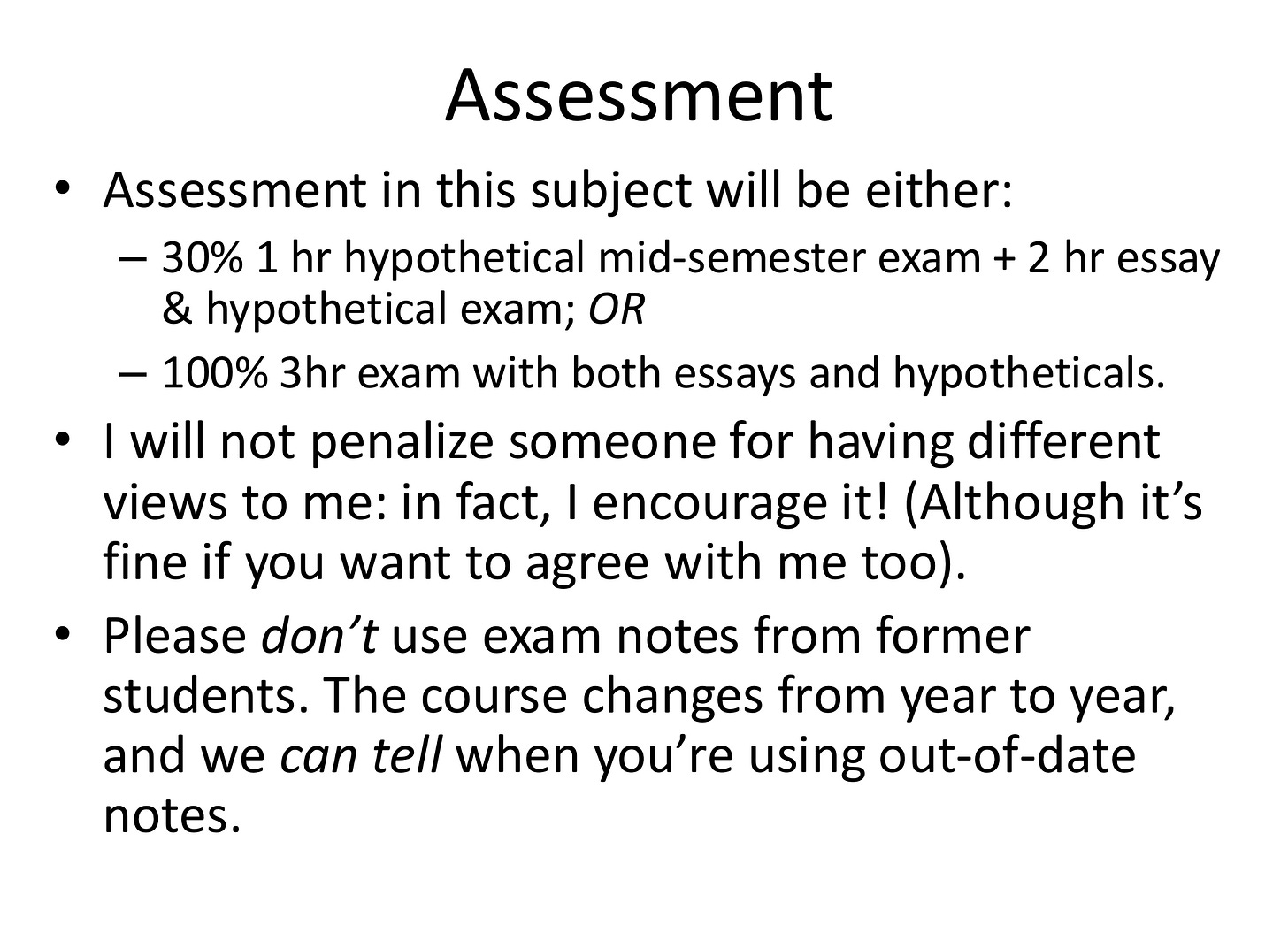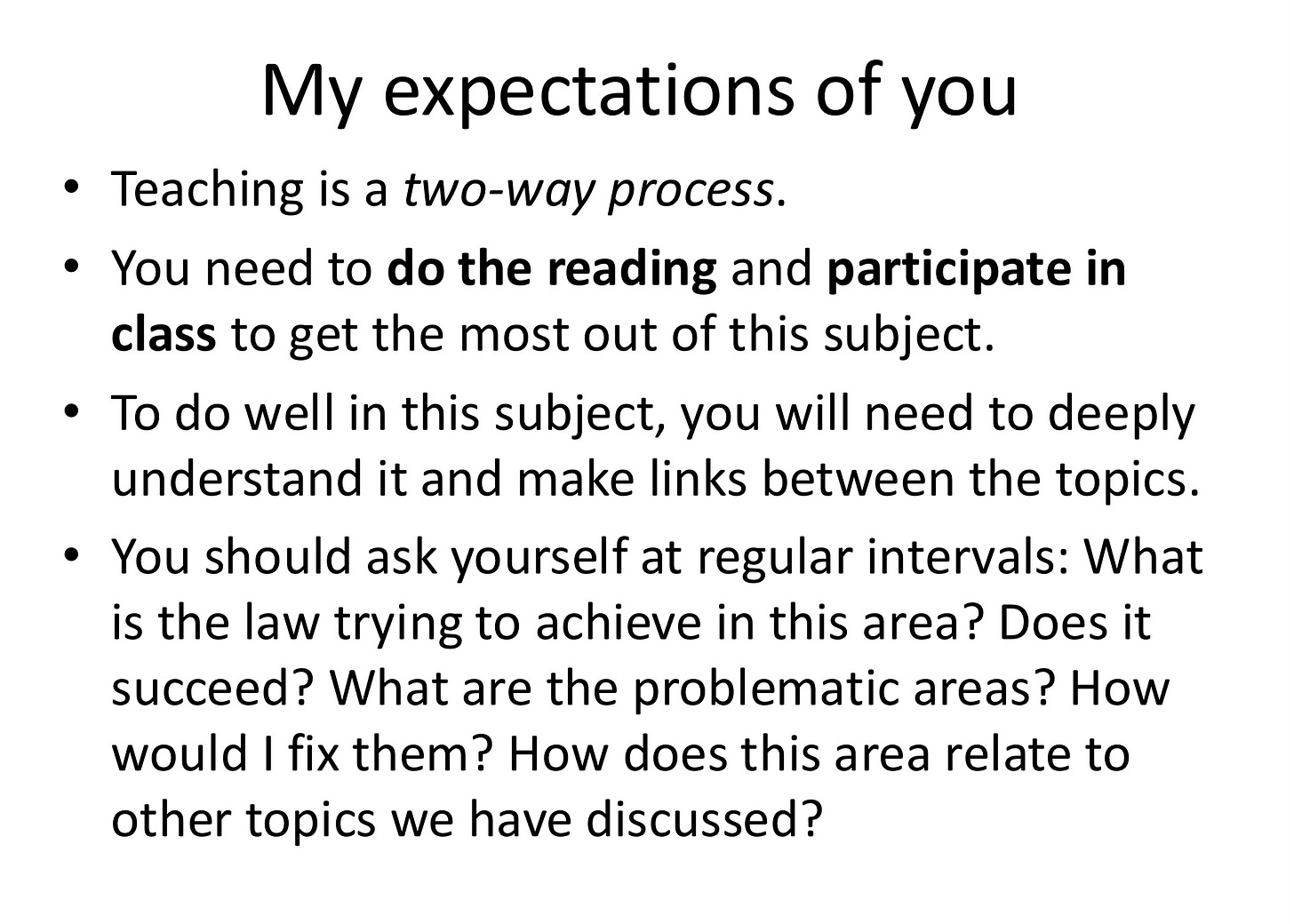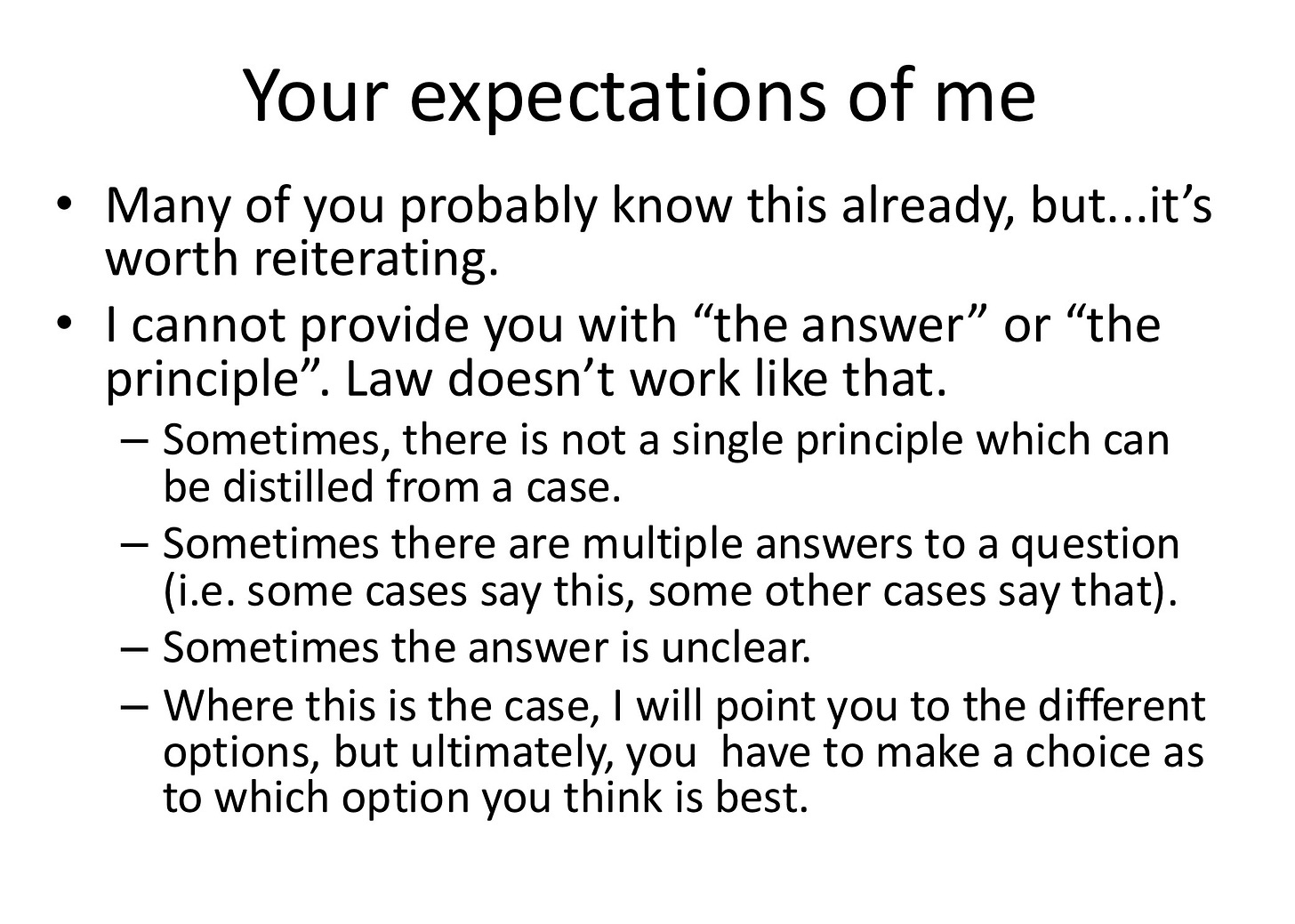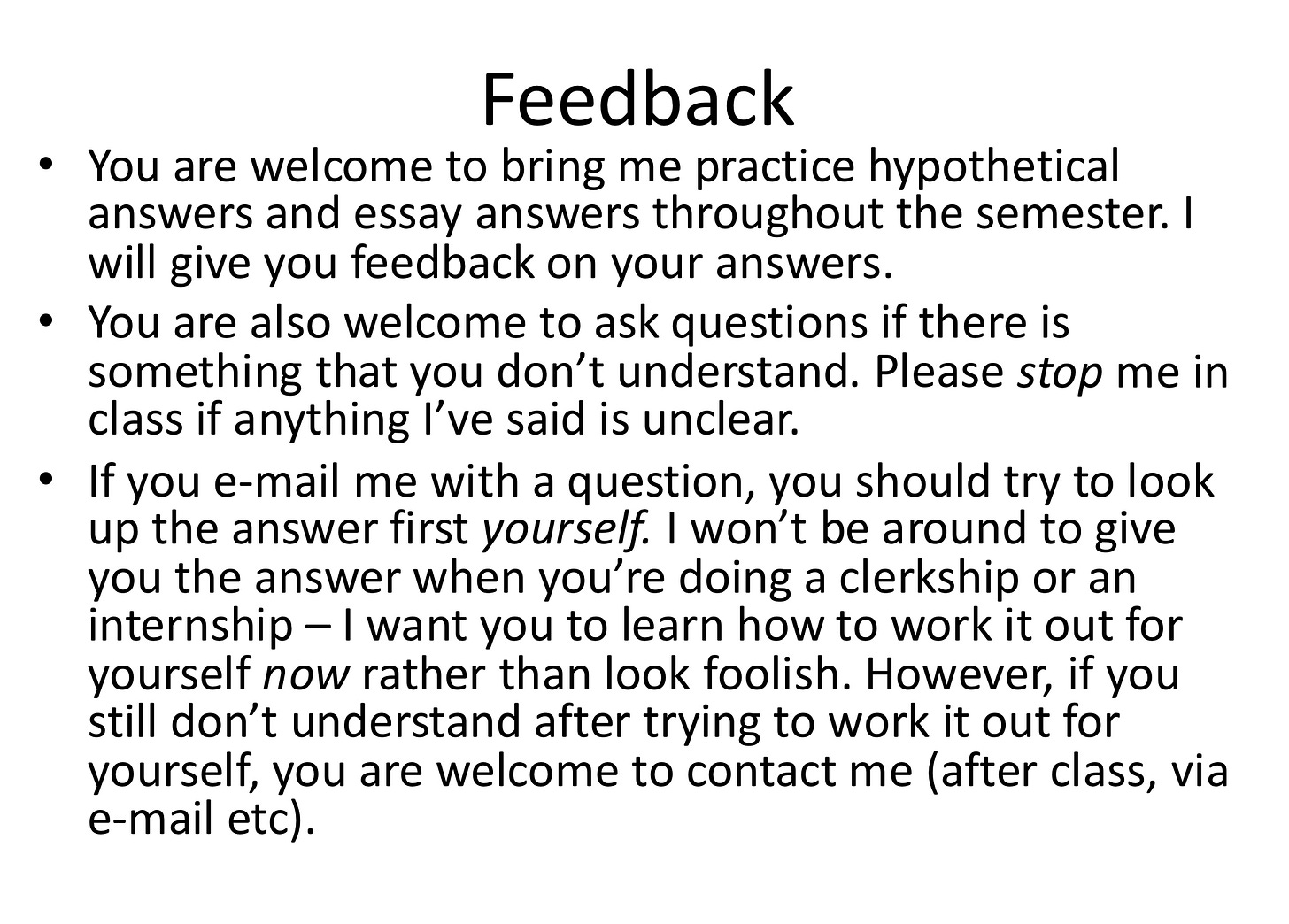The worthy fruit of academia
A philosophy of teaching
Philosophical subjects should never be taught with authority. They are not established sciences; they are full of disputed matters, open questions, and bottomless speculations. It is not the function of the teacher to settle philosophical and political controversies for the pupil, or even to recommend to him any one set of opinions as better than any others. Exposition, not imposition, of opinions is the professor’s part. The student should be made acquainted with all sides of these controversies, with the salient points of each system; he should be shown what is still in force of institutions or philosophies mainly outgrown, and what is new in those now in vogue. The very word “education” is a standing protest against dogmatic teaching. The notion that education consists in the authoritative inculcation of what the teacher deems true may be logical and appropriate in a convent, or a seminary for priests, but it is intolerable in universities and public schools, from primary to professional. The worthy fruit of academic culture is an open mind, trained to careful thinking, instructed in the methods of philosophic investigation, acquainted in a general way with the accumulated thought of past generations, and penetrated with humility.
— Charles W. Eliot, President of Harvard University, in his inaugural address as President of Harvard College (1898) [my emphasis added]

I’ve just finished teaching an intensive Masters subject. Upon my emergence, I discovered via Thomas Prosser that there has been further controversy about the role of activism in scholarship.
As I have noted previously, I believe that there is room for advocacy in scholarship—in fact, it’s necessary for much scholarly work—but activism is more dogmatic and polarising, involving taking strong actions to promote certain views. It makes it difficult to discuss things calmly.
Teaching is something different again. I believe I have to put a brake on my advocacy, and, as in the Eliot quote, fairly represent a range of views rather than push my own. I don’t think I’m successful in the “recommendation” part—my own views on the preferable course do tend to leak out—but I make it clear that others can disagree.
In my teaching career, two moments were pivotal. The first occurred in 1995, my first year at university as an undergraduate, when a lecturer openly stated at the beginning of a subject that he preferred students who adhered to his particular political views. He was true to his word; he proved it by his scorn for students who disagreed with him.
This was not what I had expected of university education. I was too terrified to speak in class. Despite this, I still chose to disagree with the lecturer in my essay; dear reader, it was the worst mark I received in any of my degrees for any assessment, but je ne regrette rien.
I resolved that if I ever became a lecturer, I would not be like him. I did not learn much in that class—unusually, I remember almost nothing of the subject, despite my generally excellent memory for the subjects I studied—but it did shape my practices as a lecturer profoundly.
It is possible to do exceptionally well in one of my subjects and disagree with my views. I cannot see why one would want acolytes. Of course, my views can be read, and they may be evident from the way in which I describe cases or the law.
However, my views are not the only views, and I try to present other views or other ways of reading and analysing cases. As I often say, I am trying to teach students how to think, not what to think. Very intelligent and experienced lawyers can have different views on the same case. There are cases where the trial judge, the three judges of the Court of Appeal and the seven judges of the High Court of Australia all have different views on what the law is. And at times, there is no clarity, or the law keeps shifting, so that it resembles one of those dunes of sand, blowing this way and that. Consequently I emphasise the availability of different views. Here’s a sample slide from my 2018 JD Trusts classes:
The second pivotal moment in my teaching career occurred in 2012. I had successfully taught medium-sized to large classes Property Law, Equity and Trusts in the Bachelor of Laws degree at Melbourne Law School since 2006. I moved to teaching medium-sized classes in the Juris Doctor degree in 2012. I was told that I had to approach JD students differently, more as peers than students. Of course, as it was my first year, I was given a punishing load of three different compulsory private law subjects, Torts, Contracts and Remedies.
I will be frank. My first year of teaching the JD was a disaster, in many ways. Among other things, in the middle of first semester, I was hospitalised with pneumonia and pleurisy.1 My classes were behind, despite the fact that a kind colleague came back from leave to assist, but I didn’t feel that I could tell students how unwell I had been. I got the worst feedback from students I’d ever received before. I was ready to quit.
My purposes in talking about this are several fold. I want to reassure young lecturers who get terrible feedback that it is possible to turn your teaching around and make things better. We don’t always talk about the times when we get very critical feedback, but I feel it’s important for me to be honest.
In 2013, I changed my approach to teaching in the JD, in two very important ways. First, I set up clear boundaries of what was and what was not appropriate behaviour. Secondly, I made sure in the first class that the students knew exactly what I expected of them, and what they could expect from me. Students are often anxious about the uncertainty of the law.
Therefore, here are some more slides from JD Trusts in 2018, setting up my boundaries and expectations. I don’t have to do this in smaller seminars, but I find it helps once you have a medium to large group:
I have a position of authority, and hence it is very important for me to make the rules clear, and to make my expectations evident at the outset. I do my students no favours if I do not test them, or if I spoon feed them; but conversely I must also help them to learn. It is important for me to be professional, compassionate and decent, but I must also remain objective and fair. I’m a lecturer, not a friend or an ally.2
The current idea in vogue seems to be that, because it is impossible to teach without some form of personal prejudice leaking in, we shouldn’t even try to remove our own prejudices, and should instead push our own vision as much as we can, even on matters which are irrelevant to the course. While—of course!—the way in which I see the world affects the way I conceive of the law, the teaching of black-letter law involves telling students what it actually is. I have to outline what the cases or the statutes say. I can’t just launch into a subject describing contract law as I wish it was in my own personal fantasy world. It must bear a relationship to what the cases and the statutes say, and I can’t just cut out the parts I don’t like, or fail to present them.
That being said, different people may take different views of what cases and statutes say. I really like reading different takes, as long as the author justifies why and how they read the statutes or cases differently. It was great teaching my Masters’ subjects with co-teachers who had different views to me, and being able to discuss matters with them and the students. I learned from my students and I enjoy my classes immensely.
My hope is that when a former student encounters something which raises issues covered in a subject I taught, they recall what I said in a general way, and know that there’s something they should pay attention to. I also hope that I give students a vision of how it all fits together; in practice, as matters arise, it can be difficult to see the big picture. That’s how I feel that I can add to legal practice.
For me, being a lecturer is both a privilege and a responsibility. I try to ensure that I sup of the worthy fruits of academic thought, and share that with others, while still keeping an open mind, and allowing for discussion and thought.
Unfortunately, this happens every couple of years, and has done since 2009.
That being said, I have become friends with students after they graduate.








Katy, you are clearly an excellent teacher. I fear you are one of a dying breed, but let's hope others can be inspired to be so professional, and thorough. The "expectations of you" slide is actually how I approach all of your posts. Thank you.
I completely agree.
Since I became regularly employed in university teaching, when I have volunteered to hand out how to vote leaflets in elections I have always asked the relevant party or campaign group to assign me to a polling place as far as practically possible from where my students were most likely to be voting in order to minimise the likelihood that a perception of my partisanship would affect any of my teacher-student relationships.